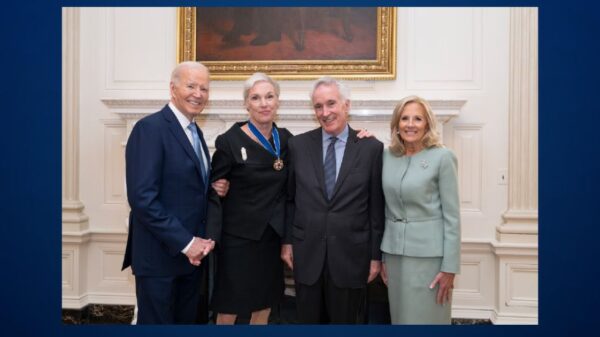As part of their effort to promote a higher minimum wage, some liberal academics shared their stories recently on Twitter about how their previous low-wage jobs were much tougher than the jobs they now hold. No doubt, roofing a house and flipping burgers are more physically demanding tasks than writing a legal brief or giving a lecture on American history, but the comparison doesn’t really mean very much.
Frankly, I was taken aback by some commenters’ negative responses to my obvious point: Wages are not determined by the strenuous nature of any job, but by supply and demand. If pay were tied to physical endurance, then California’s farm laborers would all own mansions on the Pacific Coast. All honest work is honorable, but mastering a high-demand skill remains the key to financial success. That, apparently, is now a controversial point.
The minimum wage has once again become a hot topic now that the Biden administration is looking to increase it nationally to $15 an hour – echoing the base labor rate that California lawmakers established a few years ago. Note that California has the highest poverty rate in the nation based on the Census Bureau’s cost-of-living-adjusted standard.
Our minimum wage isn’t the sole reason for this travesty, but it hasn’t helped. That mandated wage hasn’t alleviated poverty because of something known as the “substitution effect.” When I moved to California, most quality car washes were full service. You hand over your keys and attendants vacuum the carpet and run it through an automated wash. Afterward, hordes of workers descend on the washed cars to dry them and clean the windows while you enjoy a cup of coffee.
Last time I used one of those washes it cost 30 bucks. In the last year, I’ve noticed the proliferation of quality self-service washes. You often pay via an automated system and then drive into the wash. After the scrubbing, you pull into a vacuum station and finish the job on your own. It costs $8 to $17, yet the result is the same. These car washes operate with a skeletal crew.
This automated trend has proliferated following California’s minimum-wage increases and benefit mandates. Do you suppose there’s a connection? Do you think the wage hikes helped the workers who no longer have jobs during the drying? Don’t blame companies. Consumers make the ultimate decision. At $30 a pop (plus tip), I’ll wash it myself, wash it less, or seek out a cheaper alternative.
As a teenager, I worked on an assembly line making buttons. In the morning, I’d place heavy trays on a machine that dispensed plastic goop. In the afternoon, I’d punch dried plastic into buttons. By evening, I was drained – far more than I am after writing papers and columns. It’s no surprise that I’m paid much more for my current work than for my past backbreaking labor.
The biggest problem with a minimum-wage boost is that it would hurt the least-skilled workers the most. “These low-skill employees lose their jobs because of increased competition from more experienced and higher-skilled employees attracted to the new wage,” noted economist Craig Garthwaite in congressional testimony. That competition will obliterate entry-level opportunities for those without experience or many skills, he added.
I didn’t work in a button factory because it epitomized my career aspirations, but because it was the only job that I could find at the time. Likewise, those academics who shared their entry-level job stories quite obviously moved on to more satisfying and lucrative work. That touches on another key point: Minimum wage jobs aren’t supposed to be career choices, but stepping stones on the way to other things. Everyone has to start out somewhere.
Consider this recent conclusion from the nonpartisan Congressional Budget Office: “Increasing the federal minimum wage would have two principal effects on low-wage workers. For most low-wage workers, earnings and family income would increase, which would lift some families out of poverty. But other low-wage workers would become jobless, and their family income would fall – in some cases, below the poverty threshold.” It predicted a loss of 1.3 million jobs.
As CBO explained, the federal minimum wage is only $7.25 an hour – and hasn’t changed in a dozen years. But only 1.9 percent of American workers earn that measly wage. Most live in low cost-of-living states in the Deep South and are young, according to the Bureau of Labor Statistics. Can you imagine what would happen to teenage fast-food workers in Mississippi if the mandated wage suddenly doubled? The word “unemployed” jumps to mind.
Sorry, but there’s no getting around the ironclad principle of supply and demand. It’s the subject for another column, but the best way to help low-skilled workers enter the economic mainstream is to help them (through trade schools and other educational opportunities) gain the kind of higher-demand skills that will command a bigger paycheck.
Steven Greenhut is a resident senior fellow and is the Western Region director handling state affairs for the R Street Institute, a nonprofit, nonpartisan, public policy research organization that is engaged in policy research and outreach to promote free markets and limited, effective government.
















